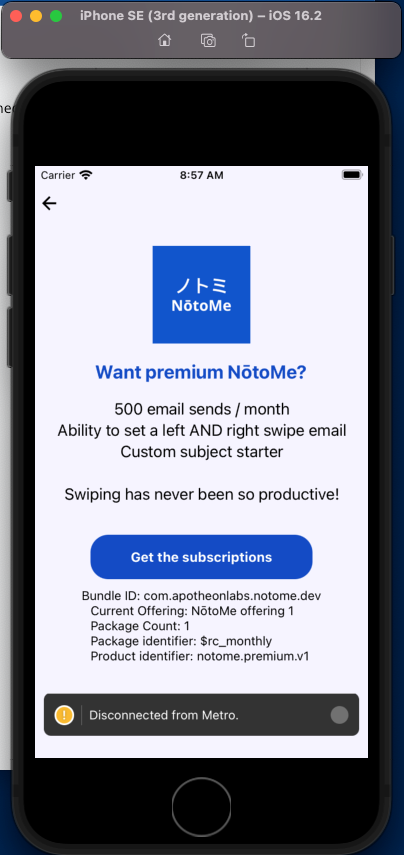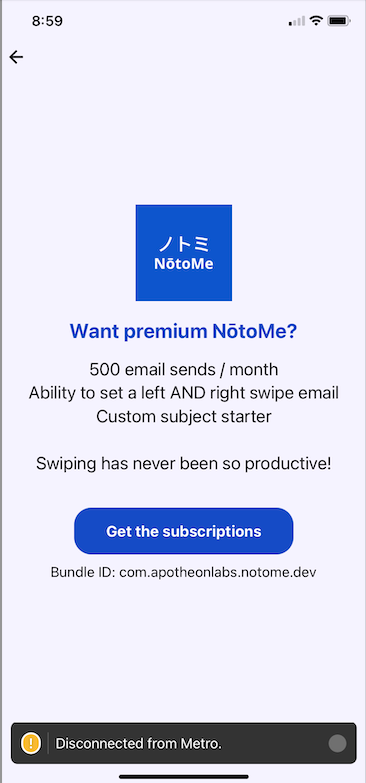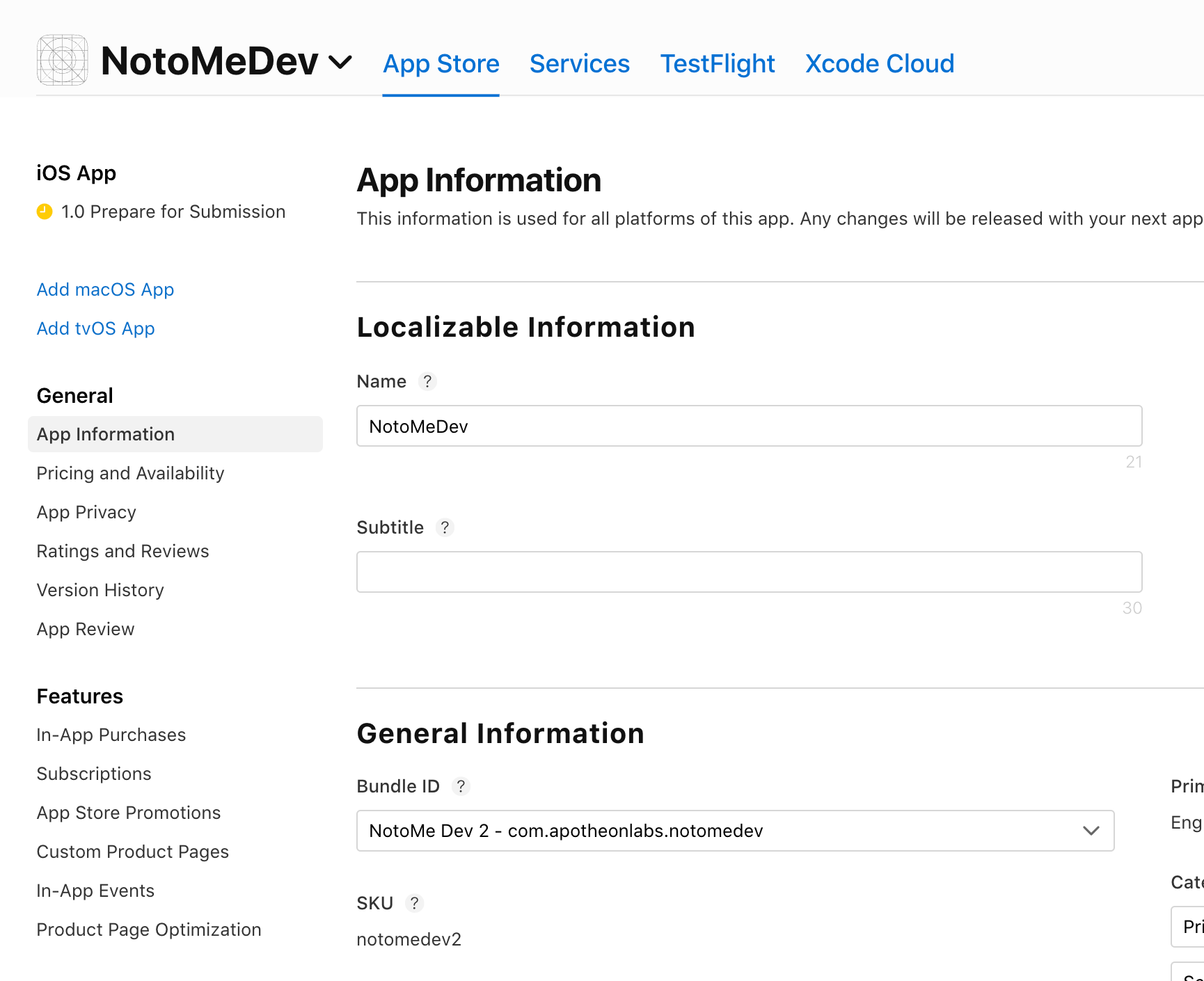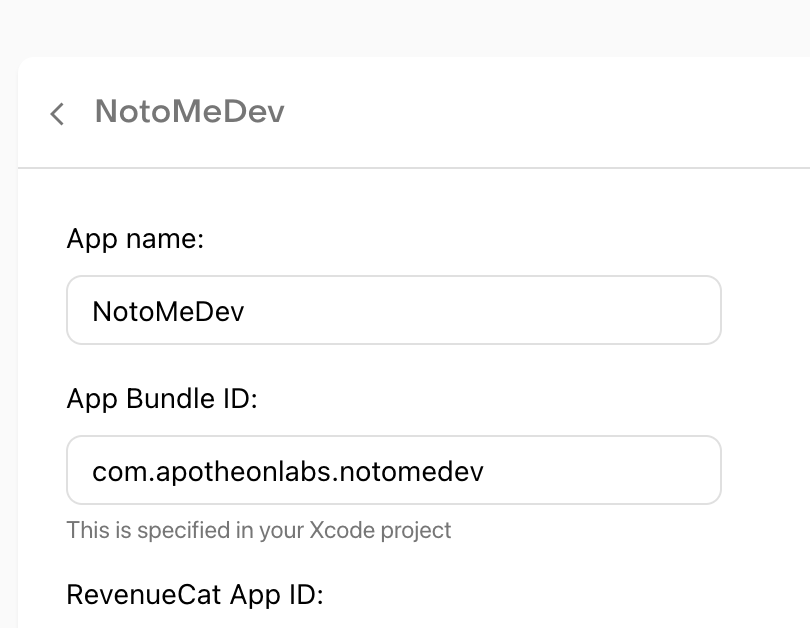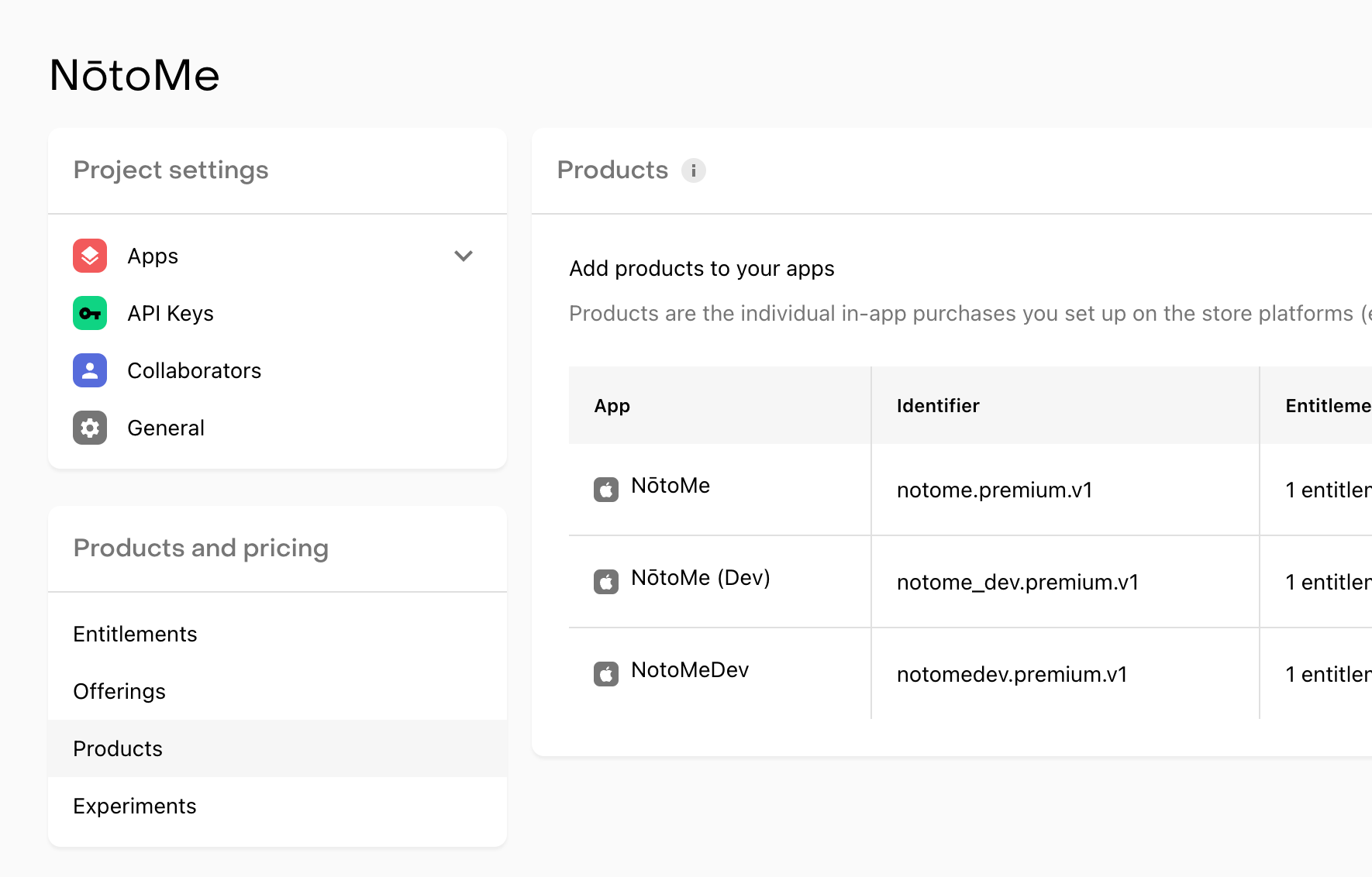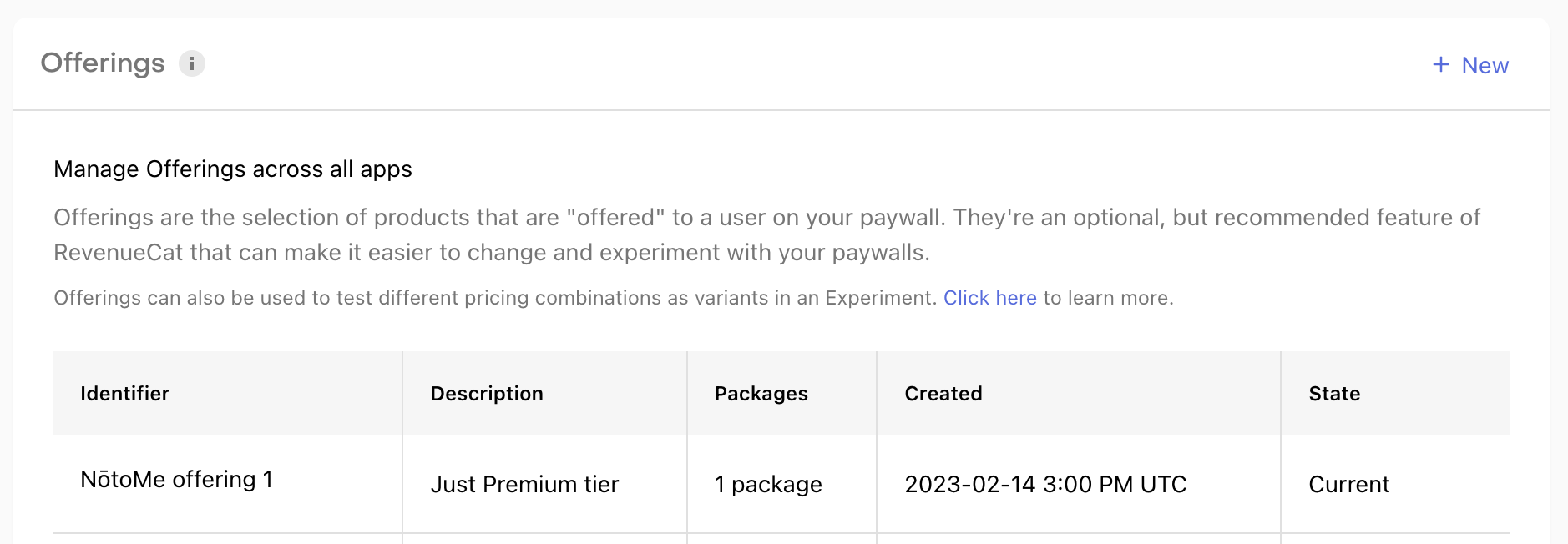This seems to be a common ask for help, but Purchases.getOfferings() is not working for me with the error `None of the products registered in the RevenueCat dashboard could be fetched from App Store Connect`. It’s a situation like this other thread (among others), but I think I’ve double-checked all the things to watch out for.
Specifically, I had RevenueCat working with my app, which right now is in beta so at most some folks are testing it via Testflight - RevenueCat could retrieve the products then. I then decided to create a dev version of my app using a different bundle ID so that I could simultaneously have the Testflight version and the Expo development build on my phone.
Now, Purchases.getOfferings() is working fine on the Testflight version (which has my original bundle ID) but not on my development version (with the new bundle ID). Things I’ve checked:
- The development build of my app has the new bundle ID
- I have created a new app in App Store Connect using that new bundle ID
- I have registered a new app in RevenueCat using that new bundle ID
- The new app in App Store Connect has the corresponding (new) subscription in a subscription group
- That new subscription has all the information filled out such that it is “Ready to Submit”
- I have registered that new subscription in RevenueCat as a new product, and it is attached to a new Offering (though it is not marked as the “Current” one)
Is there anything else I should be checking?



